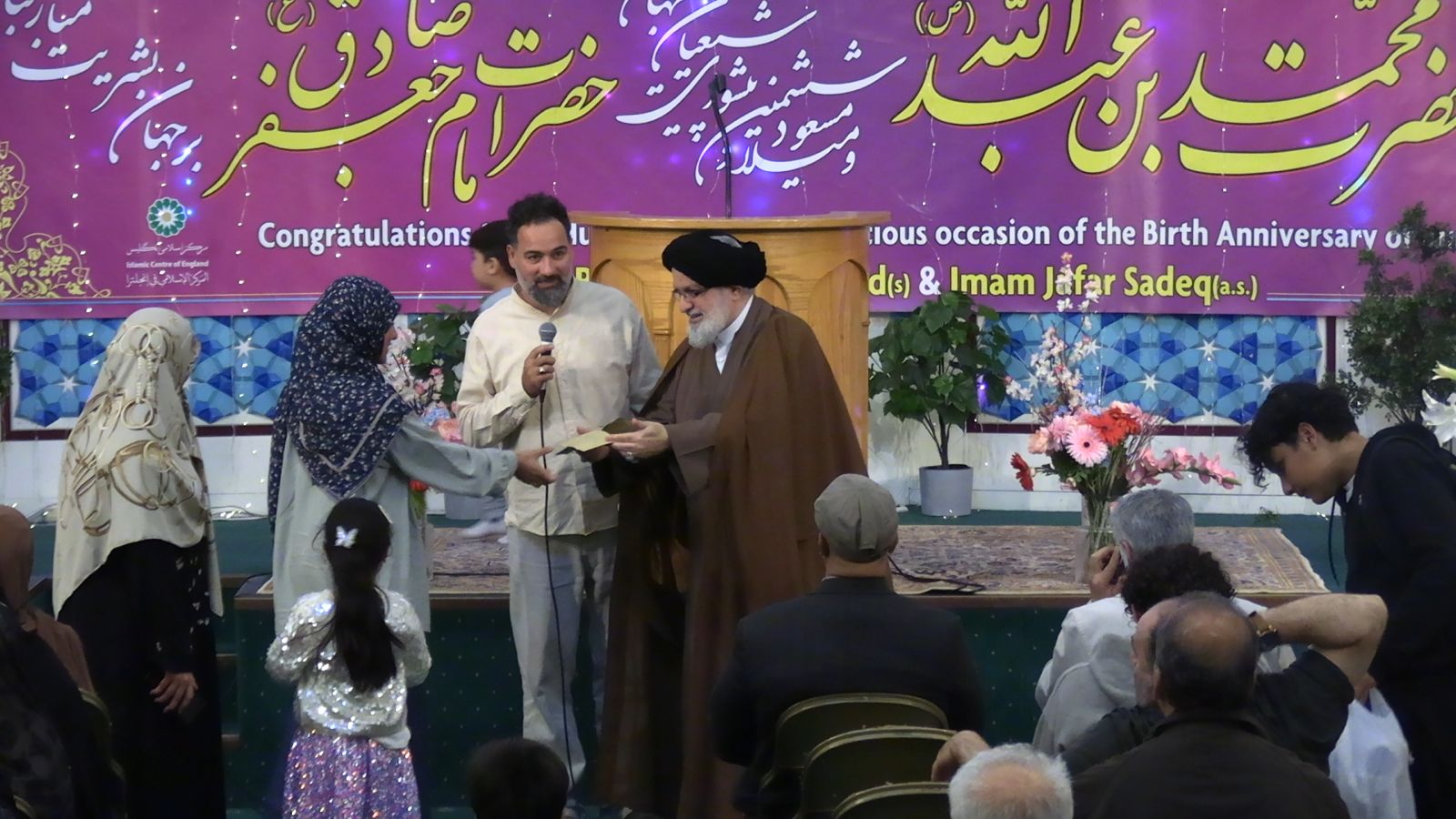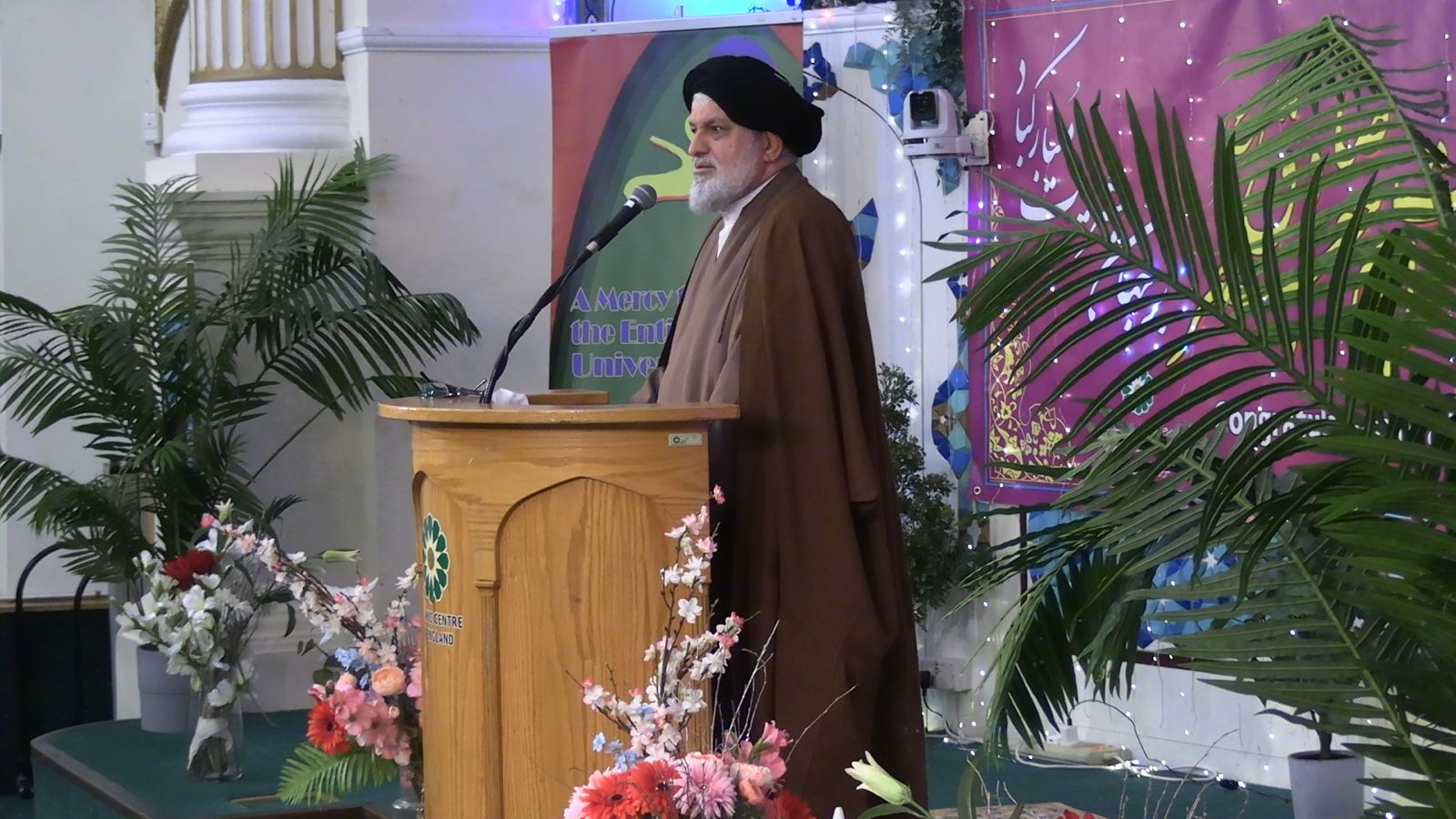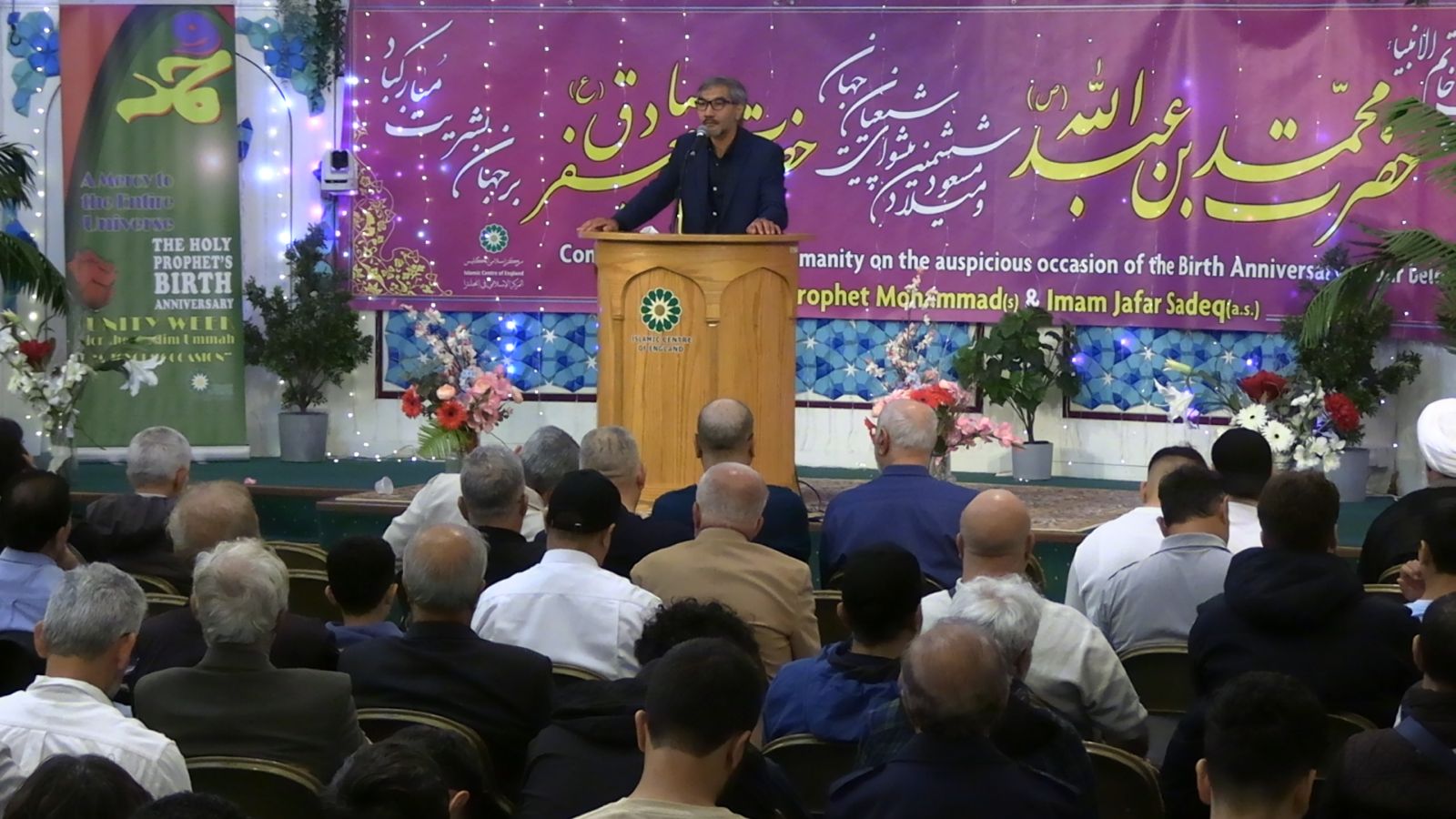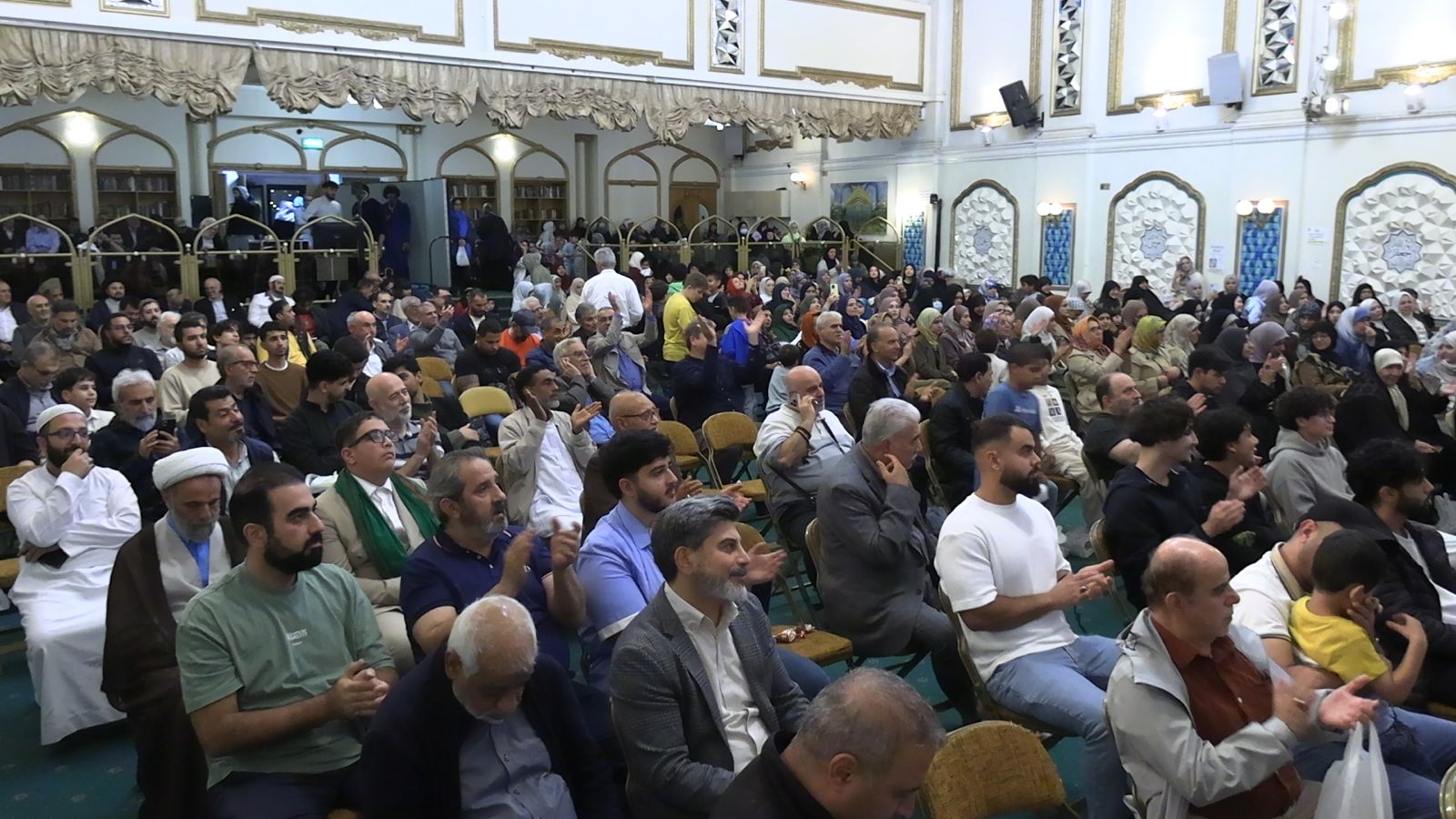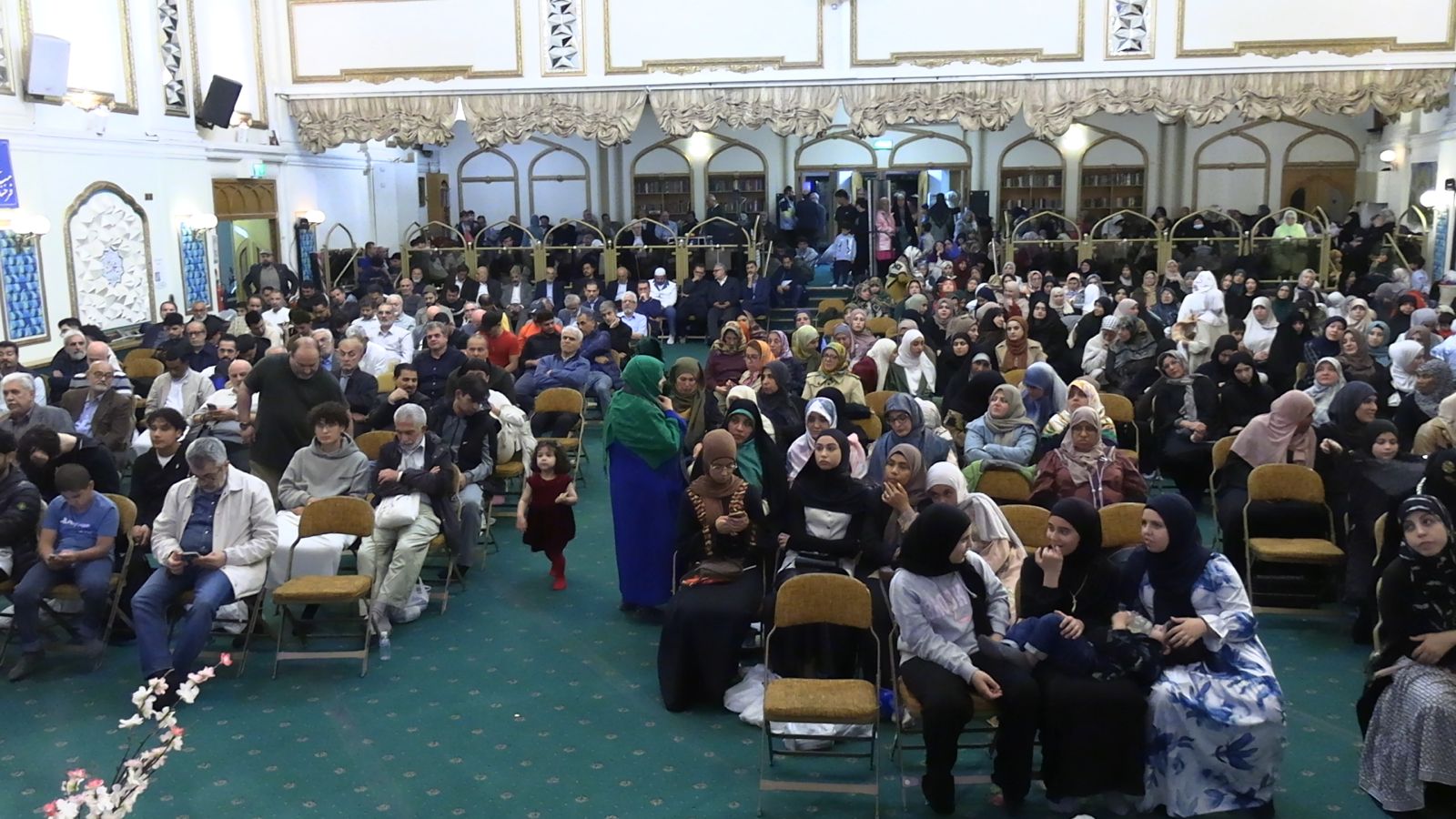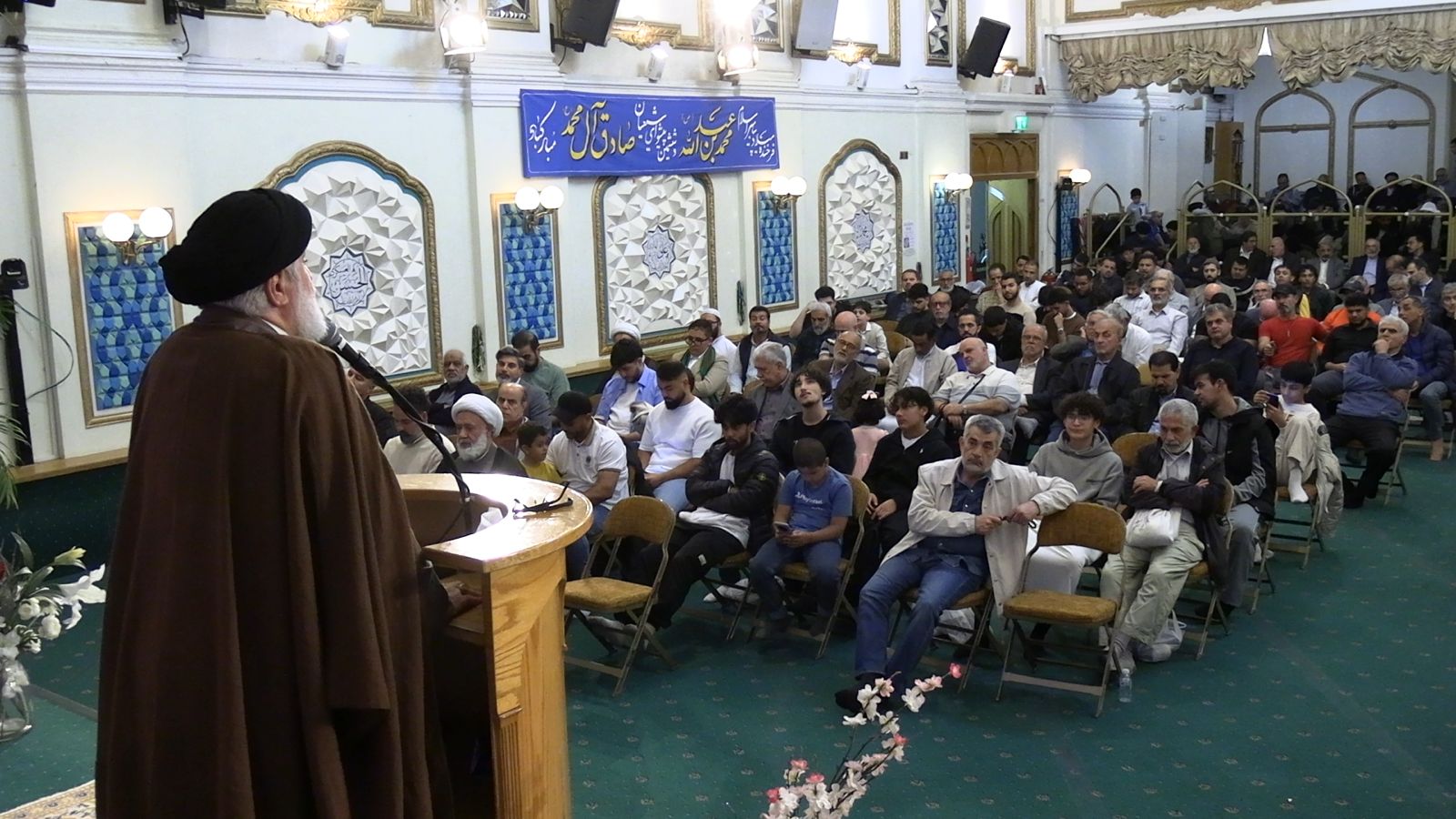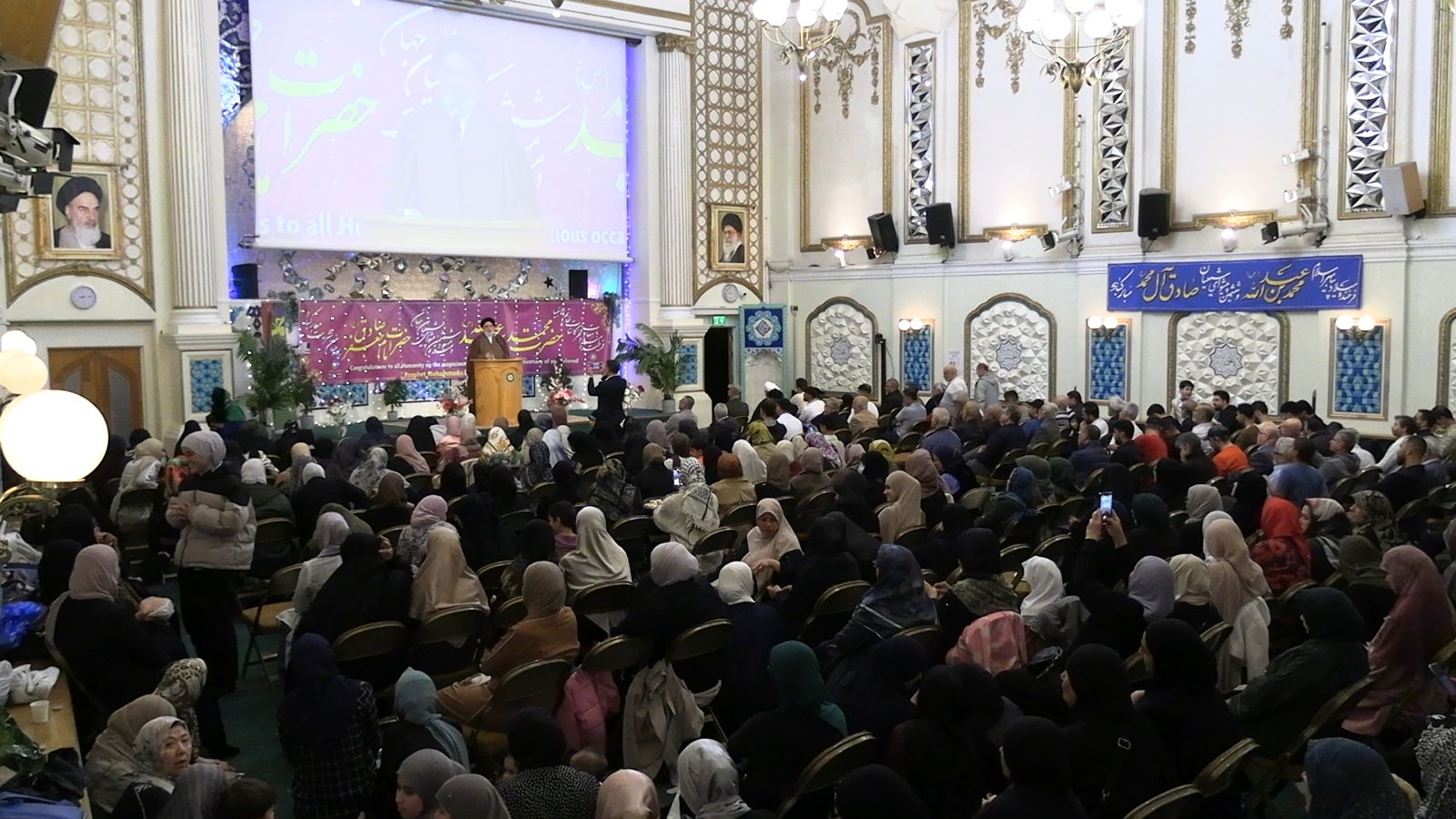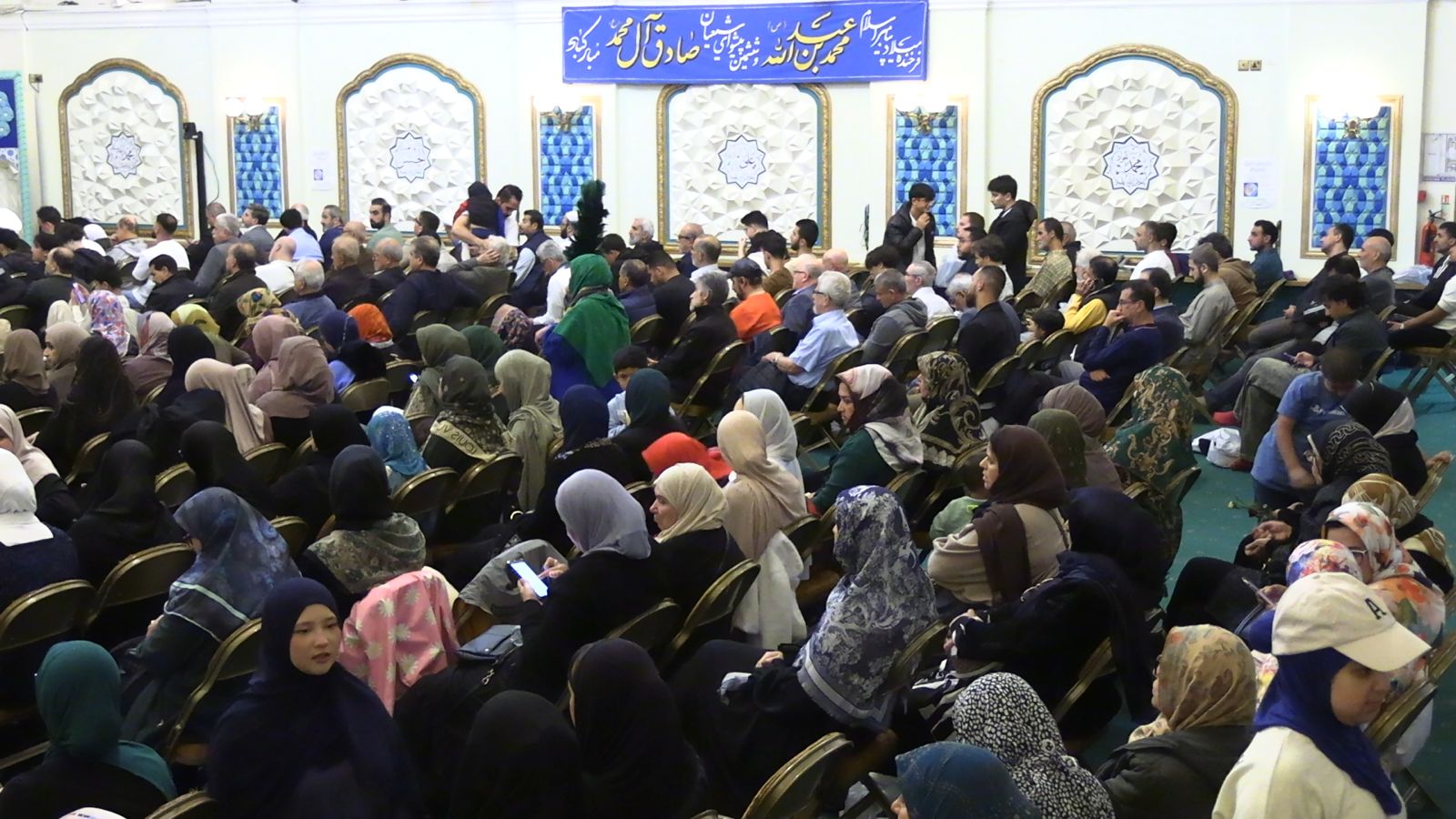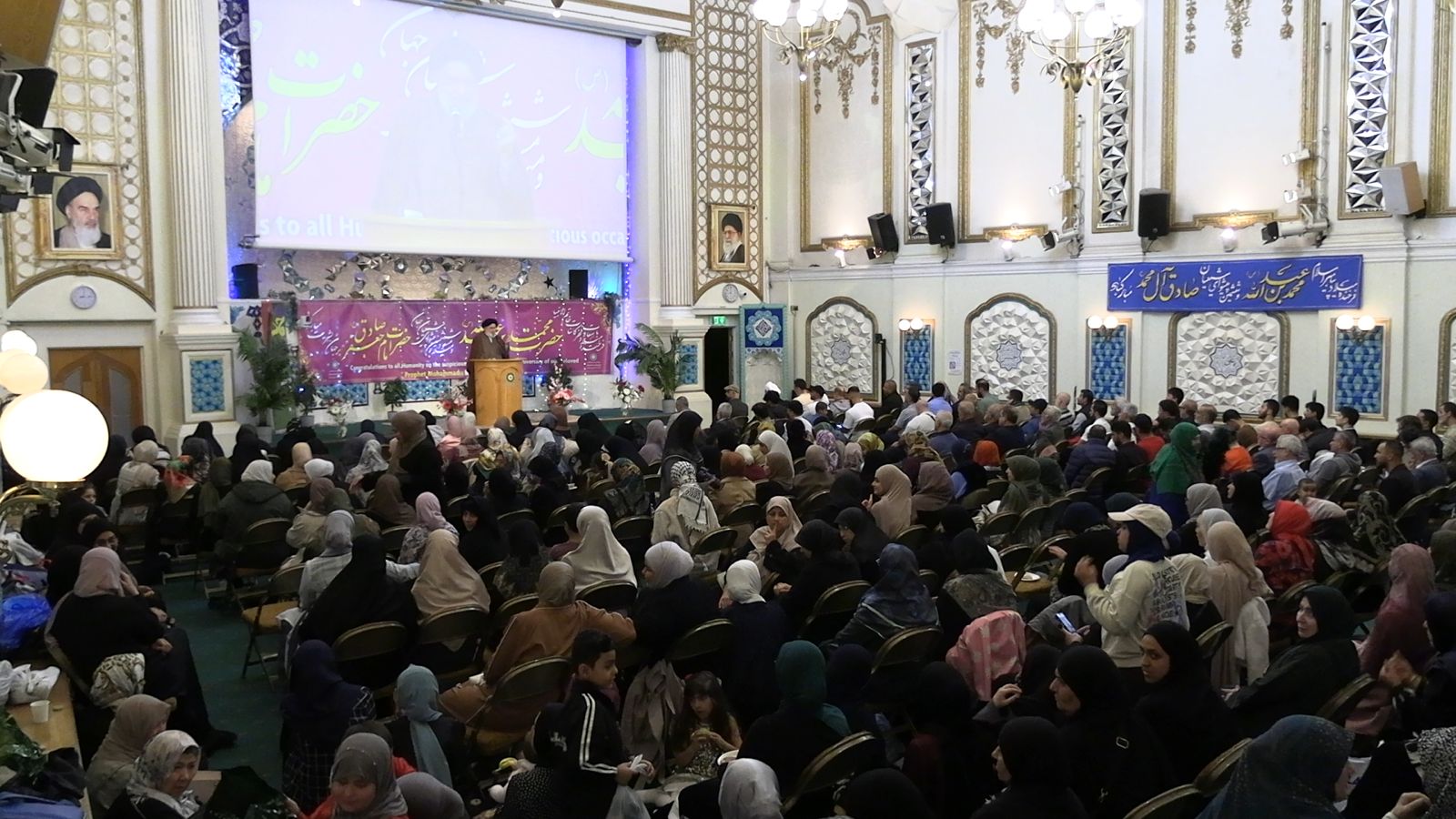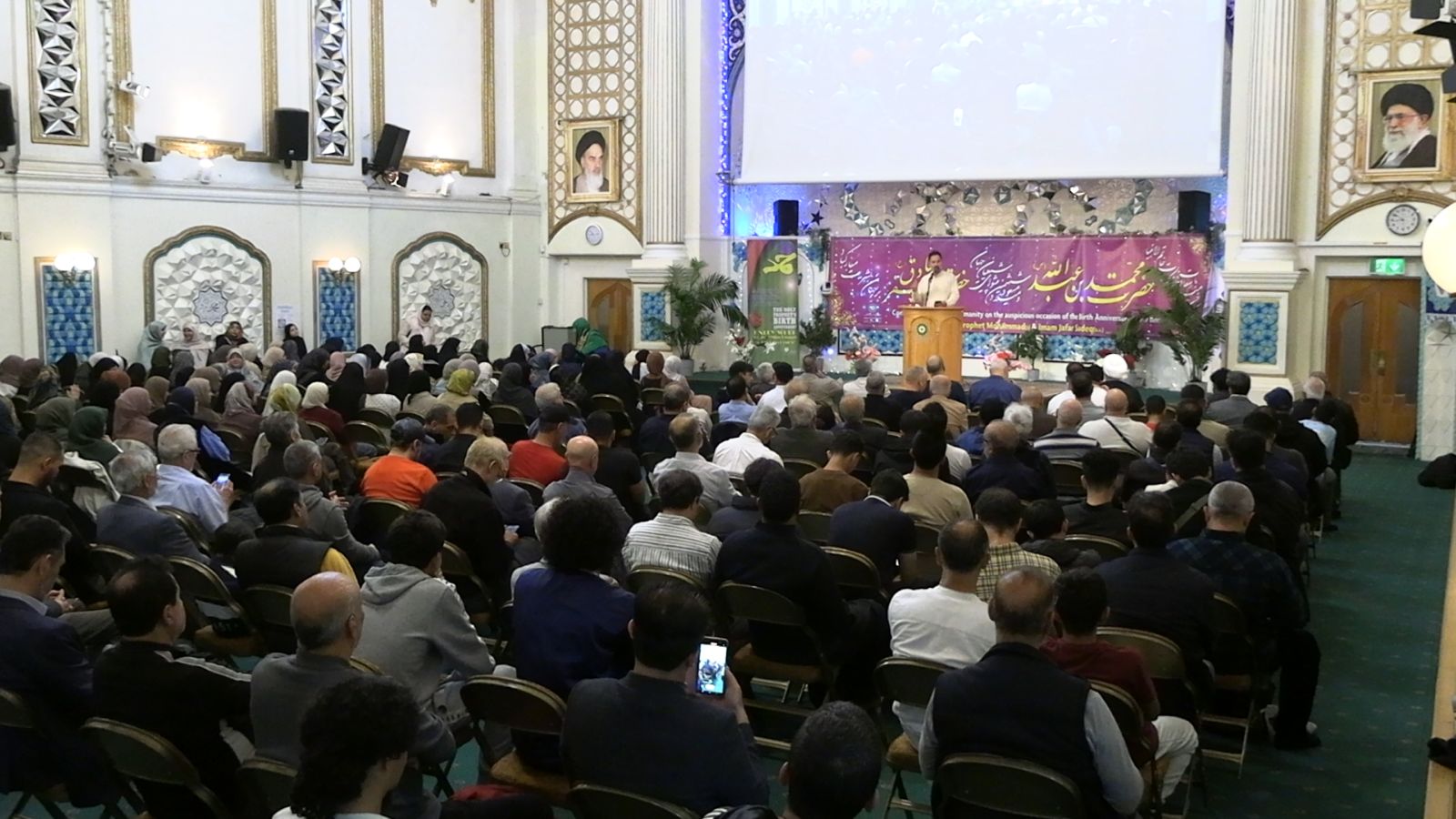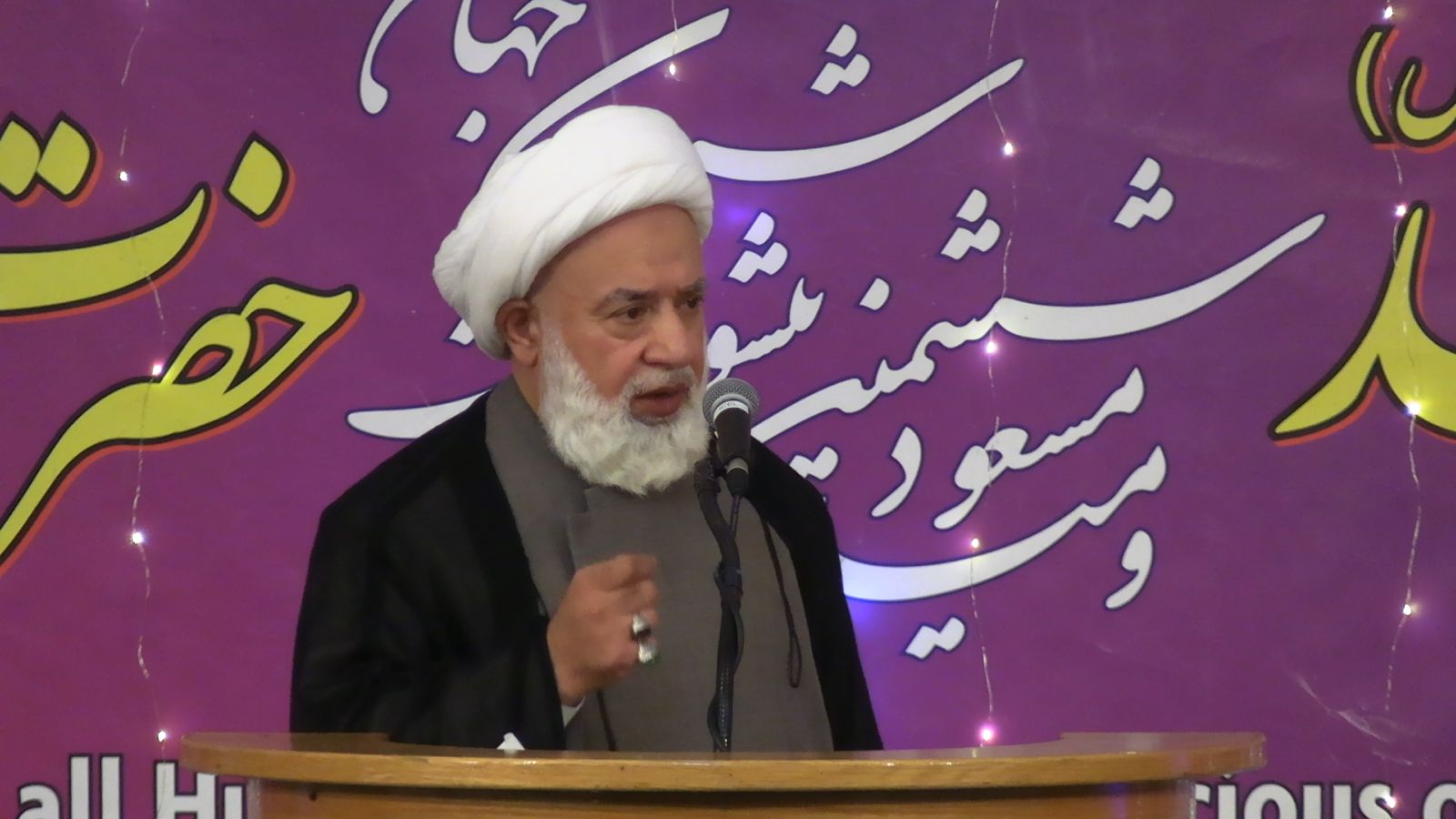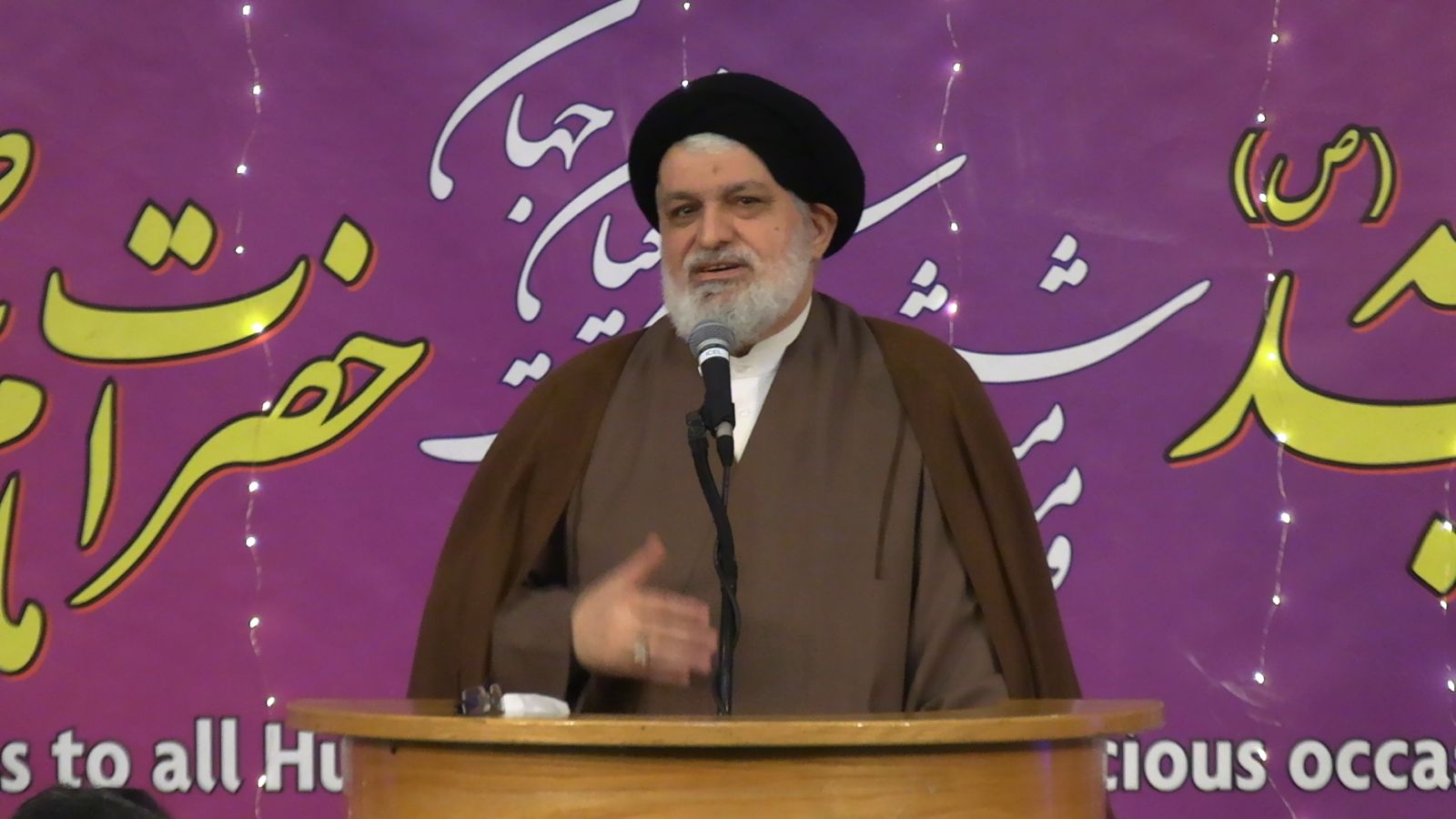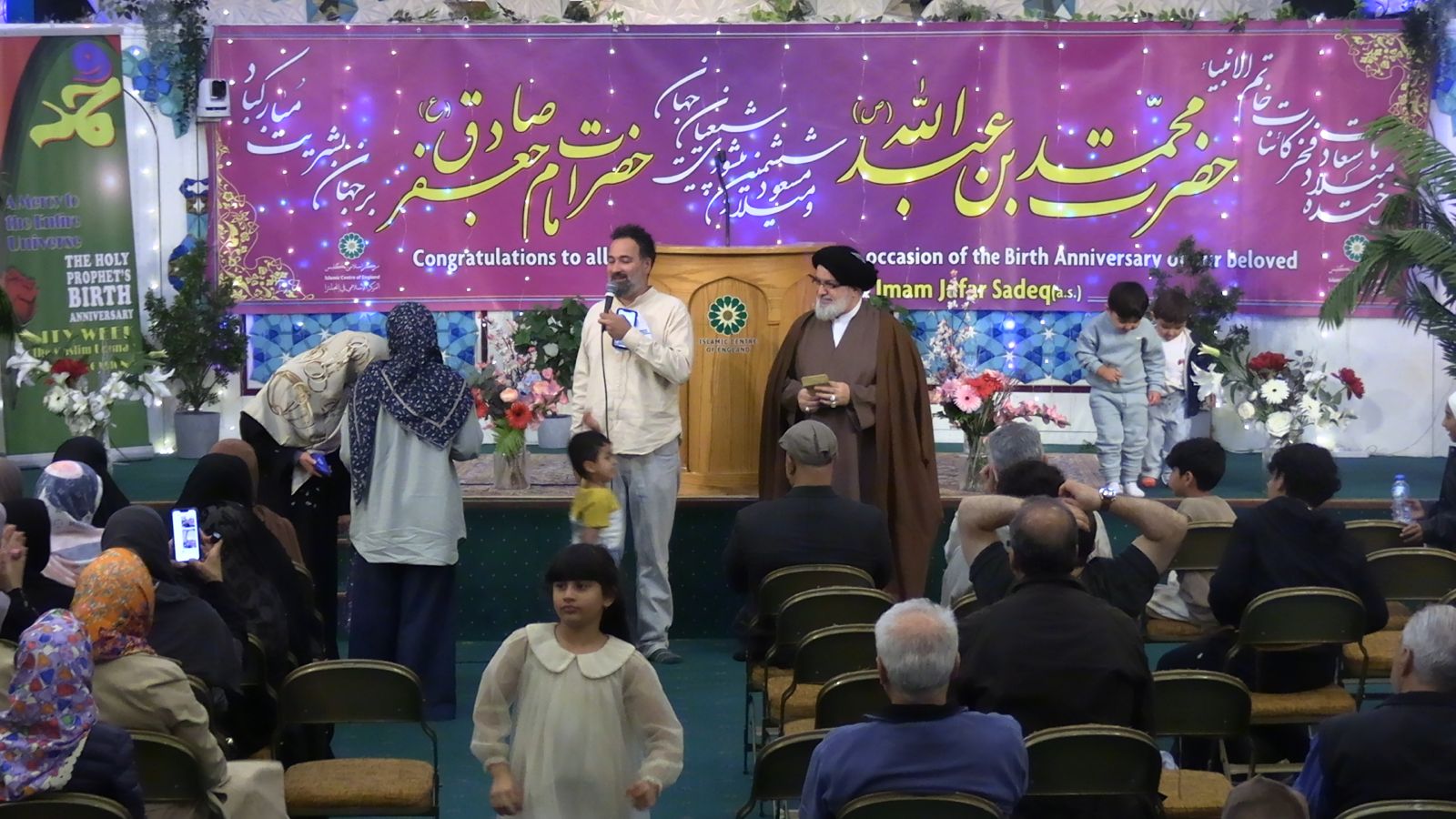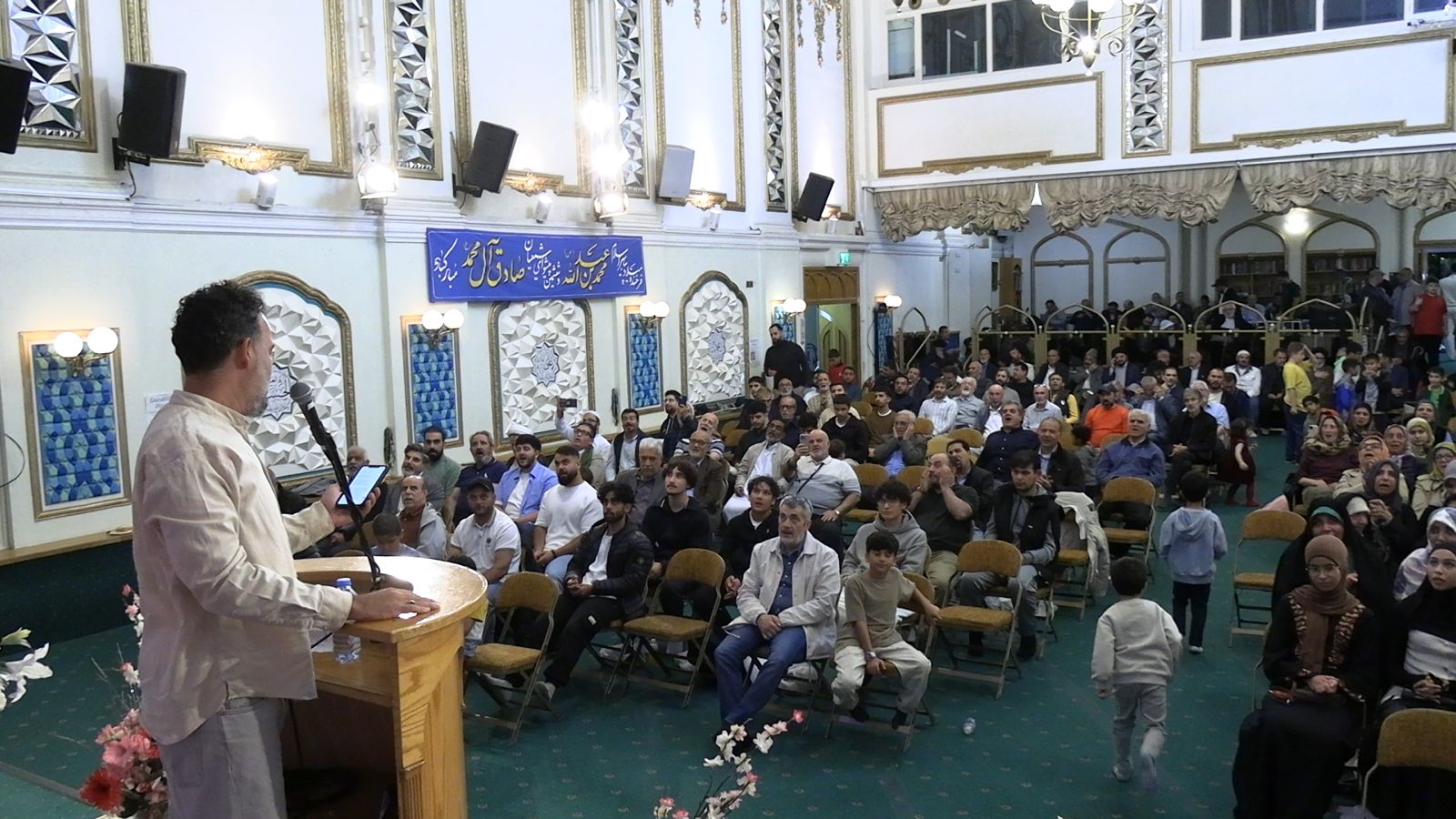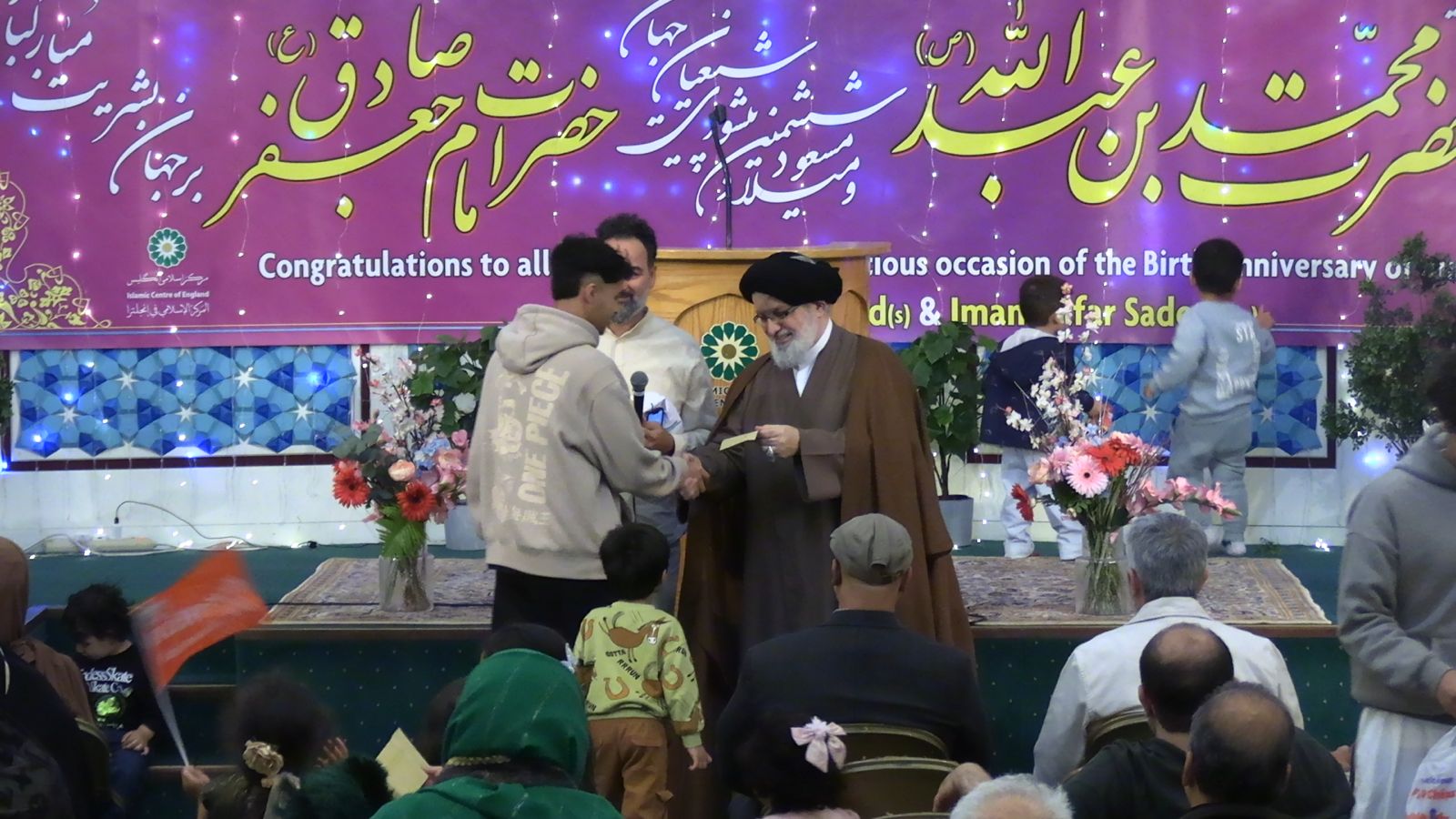On the blessed occasion of the birth of the Noble Prophet of Islam, Muhammad al-Mustafa (peace be upon him and his family), and the auspicious birth of Imam Ja‘far al-Sadiq (peace be upon him), a grand celebration was held on Wednesday, 8th September 2025, at the Islamic Centre of England.
The programme was attended by a number of participants and was conducted in three languages: Farsi, English, and Arabic. In the lecture segment, Hujjat al-Islam wal-Muslimeen Seyed Hashem Moosavi, Imam of the Islamic Centre of England, delivered talks in both Farsi and English, elaborating on the dimensions of the mission of the Prophet of Islam.
Drawing on verses from the Holy Qur’an, he explained that the central theme of the Prophet’s mission was to be “a mercy to the worlds.” He emphasised that the best way to understand the Prophet’s mission is to reflect on his Qur’anic titles and identity. In numerous verses, Allah introduces the Prophet as “a mercy to all the worlds,” meaning that he was commanded to embody Divine mercy and compassion for all humanity.
Hujjat al-Islam wal-Muslimeen Moosavi noted that while this description may appear beautiful and comforting at first sight, in reality, it is among the heaviest and most demanding responsibilities. To be a mercy for the worlds means to feel unconditional responsibility towards all people — friend and foe, supporter and opponent alike.
He highlighted the Prophet’s perseverance in this mission of mercy, calling it a severe trial. The Prophet (peace be upon him and his family) could not remain indifferent to people’s misguidance and misery, yet he was bound to guide them with justice and wisdom. This universal mercy manifested at times as glad tidings and encouragement towards good deeds, and at other times as warnings and deterrence from evil. It was at this very point that many opposed him, even resorting to harassment and assassination plots. Nevertheless, the Messenger of Allah remained compassionate and well-wishing even towards his enemies.
He further stressed that the duty of the Muslim community is to continue this path of steadfastness and mercy, stating: this command of perseverance is not exclusive to the Prophet but applies to all who claim to follow him; the closer one is to the Prophet, the more one must resemble him.
The Imam of the Centre underlined that the birth of the Prophet (peace be upon him and his family) is not merely a historical event, but a reminder of the covenant between the Muslim Ummah and Allah — to carry forward the path of steadfast mercy. It is a difficult path, but we are obliged, by following the Prophetic example, to remain firm upon it and to convey his message of mercy and perseverance to the world.
Hujjat al-Islam wal-Muslimeen Seyed Hashem Moosavi also spoke in Farsi about the importance of Islamic unity among the Muslim Ummah. He clarified that Islamic unity does not mean merging madhāhib (schools of thought), ignoring intellectual or jurisprudential differences, or denying certain beliefs. Rather, its essence lies in recognising that, despite diversity in reasoning and sources, Muslims share fundamental principles: belief in one God, the Holy Qur’an, the Noble Prophet (peace be upon him and his family), the single qiblah, and many religious rulings. Hence, unity means peaceful coexistence, cooperation, and solidarity upon these common foundations, while avoiding factors that fuel division and hostility — so that instead of disputing over minor differences, Muslims can channel their energy into greater goals such as combating ignorance and poverty, and achieving progress and prosperity.
He reminded that the first herald of unity is Allah Himself, and that unity is a universal truth directed at all Muslims. Responsibility for realising it is shared collectively, but each person and society must bear it according to their capacity.
Explaining the unifying elements in Qur’an and Prophetic Sunnah, he categorised them into positive and preventative factors: affirming shared beliefs, religious brotherhood, commands to cooperate in goodness, and calls to peace and reconciliation all serve as positive forces strengthening solidarity; while severe warnings against division, prohibitions on insult, mockery, fault-finding, suspicion, spying, and takfīr serve as preventative measures that close the doors of discord and block paths of disunity.
He concluded: Unity is not merely an emotional slogan but a practical system derived from Qur’anic and Prophetic teachings. It depends both on strengthening positive values such as brotherhood and cooperation, and on avoiding negative factors such as conflict, slander, and mistrust. Like two wings, these together lift the Muslim Ummah towards cohesion, strength, and advancement.
In continuation of the programme, Hujjat al-Islam wal-Muslimeen Shaykh Rashad Ansari delivered a speech in Arabic, elaborating on the significance of the Prophet’s mission and his role in guiding humanity. He emphasised that the most important mission of the Prophet was to raise humanity to the heights of moral excellence.
The event also featured recitations of eulogies and joyful odes in Farsi and Arabic by a eulogist of Ahl al-Bayt, filling the gathering with an atmosphere of joy and celebration.
At the conclusion, prizes were presented as souvenirs to three winners of the Kahoot competition.



